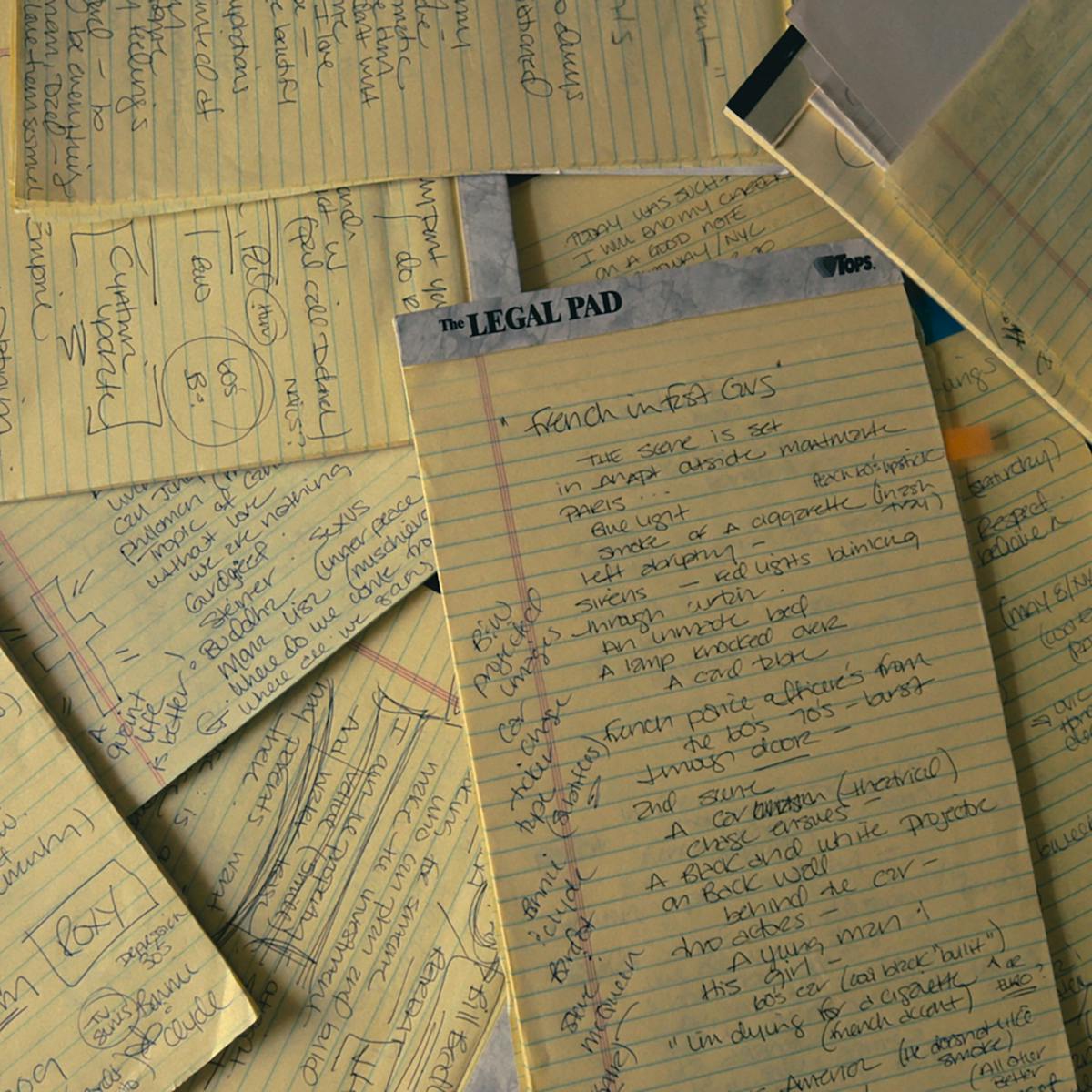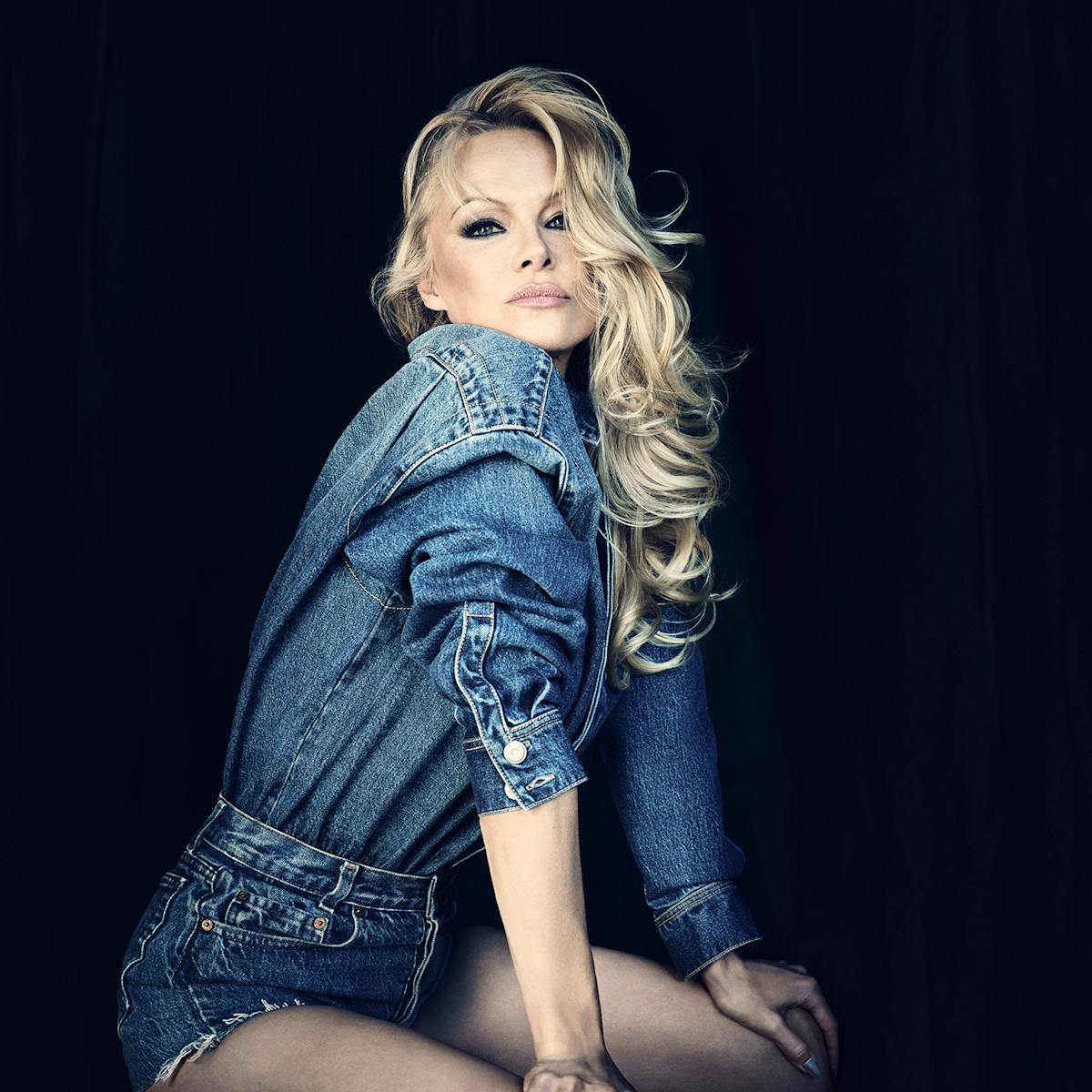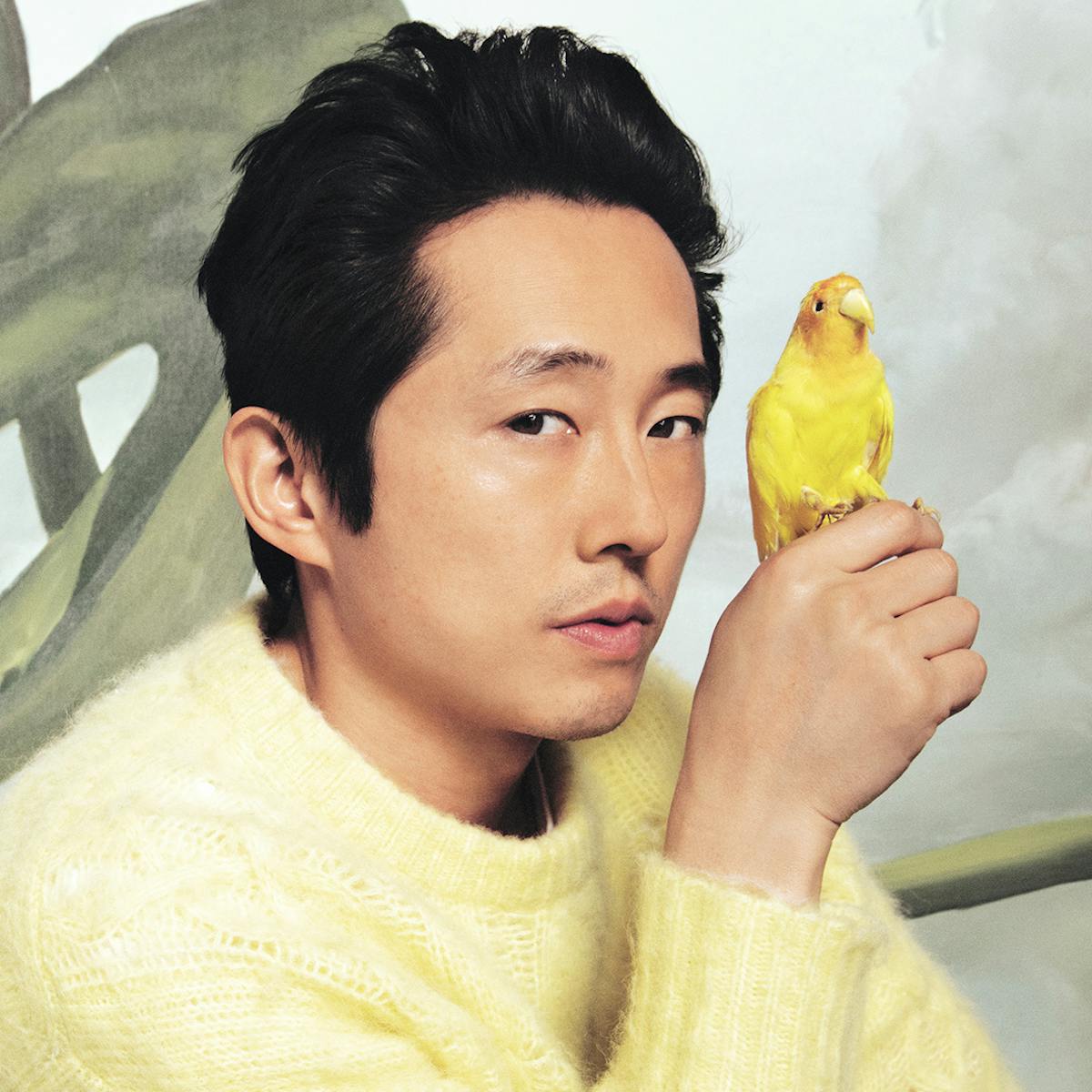Director Ryan White and producer Jessica Hargrave on making the intimate documentary, Pamela, a love story.
After decades of mischaracterization and misguided public scrutiny, Pamela Anderson takes control of her narrative once and for all in Pamela, a love story. Directed by Ryan White (Good Night Oppy, The Keepers, Serena), the documentary sees Anderson at her most raw and vulnerable, with the actress and author sharing everything that has made her the person she is today — from early childhood memories in the small Canadian town of Ladysmith to her triumphant return to the spotlight playing Roxie Hart on Broadway in Chicago. Anderson’s strength and bravery shine as she recounts some of the most traumatic, the most joyful, and the most Pamela moments of her life.
For White and his producer Jessica Hargrave, the childhood friends-turned-collaborators behind Tripod Media, the project didn’t immediately feel like a match for them — they were skeptical about gaining access to such a high-profile celebrity. It took meeting Anderson and her son Brandon Thomas Lee, a producer on the film, to realize how open and honest Anderson was about, well, everything, and their initial reservations went out the window. “There’s something about Pamela that despite the character, despite being seen as a punchline, despite being derided by talk show hosts all through the 90s and 2000s, people want to root for her,” says White. “Our film became about the most romantic person — and the way she sees the entire world — that we had ever met.”
The Pamela, a love story filmmakers were joined by moderator Madelyn Hammond at Real to Reel: A Documentary Showcase at RED Studios in Los Angeles to discuss what drew them to Anderson, how their trust with their subject informed the documentary’s intimate style, what they learned from the icon, and more.
An edited version of the conversation follows.

Pamela Anderson
Madelyn Hammond: You love doing stories about real people. Why Pamela Anderson? What attracted you to her?
Jessica Hargrave: Ryan and I have been best friends since we were little kids. But I actually got the first phone call — Josh Braun, our executive producer, had partnered with Julia Nottingham, a producer who’s based out of the U.K. I talked to them, and they said that they had access to Pamela, and would we want to make a film? I emailed Ryan. And he just wrote back, “OMG, Pamela Anderson.” And to read that email from my best friend who I know so well, I was like, “What is he . . . Is that a yes? Is that a no?” I just stared at it for a while.
I think both of us were basically skeptical, unsure that this was something that we wanted to pursue, in part because we didn’t really want to make celebrity films. We wanted to make films with true access. We were worried about that. I’ll be honest, I didn’t know how much of a story she had to tell. I should only speak for myself, but it was like we held our own understandings that we needed to explore. We didn’t understand her depth. Then we had lunch with her son and Ryan had a Zoom with her. And it just changed everything.
So, Ryan, did that OMG mean “OMG, yes, love to do it, this is amazing”?
Ryan White: It was probably like, “That is a great doc subject.” Because we often joke as documentary filmmakers, we’re going to run out of celebrities soon — how many other celebrities have not told their story? But I also remember thinking, We might not be the right fit for that. And that’s because of the preconceived notions that Jess was talking about. [Then] we had lunch with Brandon, Pamela’s son, and everything that he told us at that lunch started to chisel away at these preconceived notions of who she might be, but we were suspicious. We were skeptical of whether he was telling us the truth, and about really how down-to-earth she was, or that she’s back on this island [Vancouver Island] and she’s left fame and money behind.
So, he basically begged us to get on a Zoom with Pamela and just meet her face to face, and that conversation totally sold me. It was two hours long. One of my favorite parts about working with Pamela was she was, from the very first conversation, very uninterested in the documentary as a product or as a film, or what people [might] take away. She just wanted to connect on a one-on-one level. It’s really rare, even for a non-celebrity in a doc, that they’re not that interested in the process. For better or worse, Pamela is real. Brandon had told us that, and we were skeptical. This was probably two and a half years ago, and she’s proven that time and time again.
It’s interesting because the way that people know her is so not real, almost like a parody of a sex symbol. I was so struck that from the very first frame she wears no makeup. It humanizes her. Was that her choice, your choice? Did it just organically happen?
JH: Her choice. We never asked for that. And we didn’t use a single light in this film, which is crazy to me. We thought that that would be her expectation, and I just remember we shot the first interview with only one camera because we weren’t expecting it to be what it became. She just shuffled down in her Uggs and sat down and started talking. And it was supposed to be a warm-up. Ryan was like, “We only had one camera, and we didn’t use any lights, but she was fine with it.” That then became the style. So every time we went, we didn’t even have to really get ready. You just turn the cameras on, and Pamela shows up with a cup of coffee, and you start talking. But that was exactly what we wanted people to feel, that you’re just sitting down for a cup of coffee, and you’re going to talk to Pamela. That was what the vibe was from the start.
Ryan, take me back, how many years ago did this process start? This was before Love, Pamela: A Memoir of Prose, Poetry, and Truth the autobiography came out.
RW: I have an awful memory, but I think it was about two and a half years ago that we first met Pamela. The memoir that you’re referencing, she had actually started writing that. In my first Zoom with her, she told me about it, and she said, “Would you like to read the first draft of it?” I said, “Absolutely,” and she emailed it to me. It blew us away, blew everyone on our team away.
The honesty of it?
RW: The honesty, the humor. It’s an incredible life story, and the way she tells it is the exact type of storytelling that we like to sink our teeth into. It’s really rare you have that as a foundation as a documentary filmmaker. I didn’t have to do this massive excavation of her memory, and I had a 300-page manuscript of how she remembered her life. It gave us a springboard from where to begin. So, when she shuffled down the hill the first day and came into the beach house and sat on that white couch, we never thought that was going to end up in the film. It became the spine of the entire film. Every month when we visited her, I’d say, “I’d like to sit on the white couch with you for one or two days and pick back up where we left off.” It was just her telling her life story so honestly and raw.
Even as a teenage girl, she would keep these journals, and write things down, and draw pictures. I can only imagine what it was like going through that treasure trove of material. Who was responsible for reading them, and what was that process like?
JH: On trip number one, we came home with a suitcase full of her private journals, but it was too much. We ended up having to drive a van down from Vancouver Island to L.A. with all of her private journals. It’s love letters from boyfriends, all these things that I would personally never turn over. So I view it as such an act of bravery and trust, and I respected that she was all in. That woman, if she is going to do something, she’s going to do it with everything that she has. An associate producer on our team, Dominique Hessert Owens, she read them all, and she wrote them all down. And then she did the scratch recording of the journal entries that we use in the film. The voice in the film is also Dominique.
Quite an unsung hero, this woman, because there were a lot of journals.
RW: I had these visions of Pamela reading them in a recording studio, and Pamela’s nothing if not self-aware. And the moment she said, “No, I don’t want that. And trust me, Ryan, you don’t want that. You don’t want to pull the curtain back on this film in that type of way where I start wondering how you’re using things or why you’re using things.” So I gave in really fast, which you see in that moment in the film.
Brandon had been watching cuts, and normally, working with a celebrity’s son, you would think that’s going to be a nightmare when it comes to trying to control what that image is. Brandon was the one always pushing us, “Show it realer, show it uglier. My mom’s not that. You’ve got to show the dark sides.” So when he was watching the cuts, he said, “No one knows my mom’s inner thoughts better than this woman Dominique. She sounds like my mom. My mom heard her voice and said, ‘That woman sounds like me.’ Why would we hire some actor in some publicity stunt?”
Pamela has an incredible relationship with these two sons, both of them very protective, very loving. Did her younger son, [Dylan], want to be involved too, or was it mostly Brandon?
RW: Well, Brandon is a producer and Dylan’s not, but that’s very Brandon and Dylan. Dylan’s very laid back, but when Dylan shows up, he shows up. He has a lot of his mom in him, and so he’s more shy. We were terrified about working with the children of Pamela Anderson and Tommy Lee. But these are incredibly mature kids. And I think it’s a testament to Pamela. She’ll never take credit for that.
That whole family is so unashamed of their past. Pamela’s the pinnacle of that. I’ve never met someone who has so little regret, so little shame that she’s willing to hand over every diary without saying, “What are you going to use?” She still doesn’t know. She’s only half-watched the film once or twice. So she gets asked questions, and she’ll say to me, “What’s that diary that journalist is referencing?” That type of vulnerability and lack of shame I think is so rare. And the sons were totally willing to allow us to do that in a way that they felt would be fully representative, fully dimensional of who their mom was.
She owned it. And to that point about not being ashamed, after the stolen tape came out, her career was completely derailed. Someone else may have been shattered. As she was talking about this small but very important part in her life, what was the one-on-one like?
JH: It’s really triggering for her still. You can see that it’s one of the only times that she’s expressing, “I’m having a tough time talking about this,” which was really revelatory for us to know because when we were coming up, you didn’t understand the backstory of what had happened. And what’s happened to sex tapes since is an entirely different scenario, but for her it was 100% a violation.
What I always try to take from her and learn from her, and I still think about it, is this ability to look forward. She would say to Ryan, “I don’t want this to be a sob story.” She doesn’t want people to feel sorry for her. That’s not what she’s looking for. She’s actually not looking for anything. She’s just like, “This is who I am, and you can take it or leave it.” But for me, the ability to forgive and say, “I’m going to focus on me and my family, and I’m going to take that next step,” is really inspiring. And that’s what she did.

Jessica Hargrave and Ryan White
I’m so glad to see the way that it’s come back around for her. But I don’t think she ever anticipated that. I don’t think she ever knew, Oh, if I just wait long enough, then suddenly everyone will have this awakening and understand.
RW: From the very beginning, Pamela said, “No guardrails, nothing’s off limits. I’ve never talked about these things even with my family and best friends, especially the stolen tape. But I will go there.” We have made films about sexual trauma or survivors before, so we’ve learned a lot on the job over the last 10 years. We did The Keepers for Netflix, and that was a huge learning experience for us. A lot of the relationship between us was just feeling out when it was time to take a break.
In the film, she’s got self-help books on her nightstand and she’s listening to some self-help tapes. I was struck by that because I feel like this is a woman who’s continually working on herself trying to alleviate some of the traumas from the past. Did you get that sense?
JH: Yeah. She’s very spiritual and she is always working on herself. She’s a voracious reader. She’s journaling all the time as you saw in the film. But I also love that she’s a forever learner. Chicago’s a great example of that. I remember when we got that call and I thought, Oh man, is she ready for that? Broadway, are we sure about this? She just was like, “I’m not sure about it but I’m going to figure it out.” The bravery.
I remember being nervous for her. That was a very emotional night for both me and Ryan because the thing that we kept talking about as a team is that we just really rooted for her. And to see her do well in her performance I was just so pleased because also she works her ass off. She was at every single rehearsal for hours. She did every single performance. She didn’t miss one. Again, she’s all in.
RW: Everyone on our crew would say, she just feels really real. So there’s a relatability factor to Pamela. The crew loved her, and the Chicago crew loved her. They said there had never been a celebrity that had done that role of Roxie Hart that did every single show.
There’s a sweetness to her and an authenticity. I love that she became an animal activist. Did you feel like that was her way of regaining her strength and telling a different story?
JH: She had a couple of experiences when she was growing up involving animals. Her dad was a hunter, and she encountered that in a way that was really traumatizing to her when she was very young. And she just turned a corner. She’s vegan, but she’s naughty, she acknowledges. I think that part of it is, again, the relatability. But at the same time, she uses what she got and she’s made a huge difference. I mean, PETA loves her. Back in the day, she was already a vegan. And I think that it’s very, very important to her, and it still is.
As you watch it, you realize she is a romantic. It is a love story with every aspect of her life. What’s the one thing about her life that just really blew you away that you never knew?
JH: I think motherhood really stood out to me. I’m a mom and she felt like this caricature in some ways and I was curious about what that relationship would be like. I was really inspired by it because as a mom, you’re always a working mom. You’re always trying to balance these things. I watched how she was unapologetic in the prioritizing of her kids. I felt like it gave me permission to do that, too.








